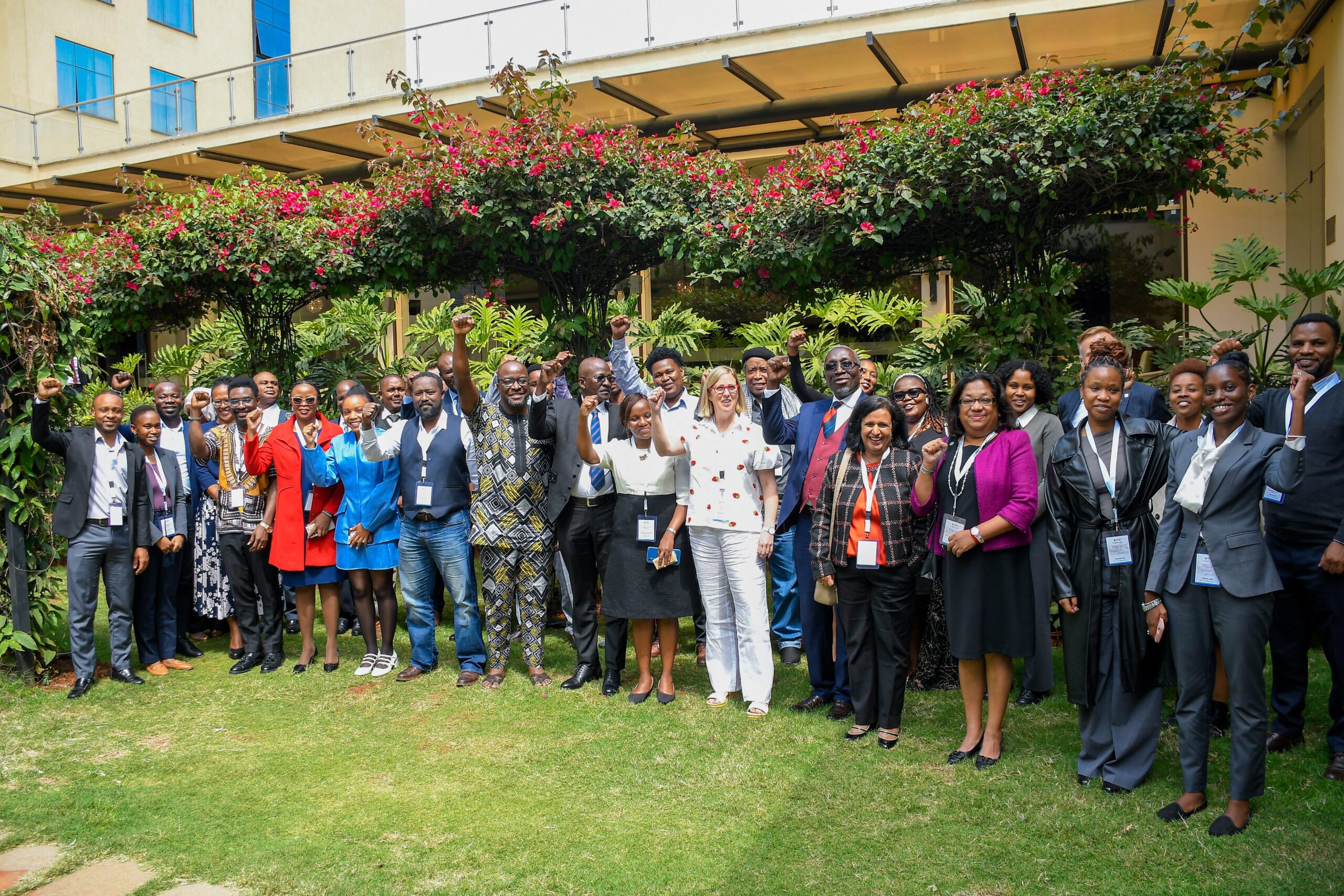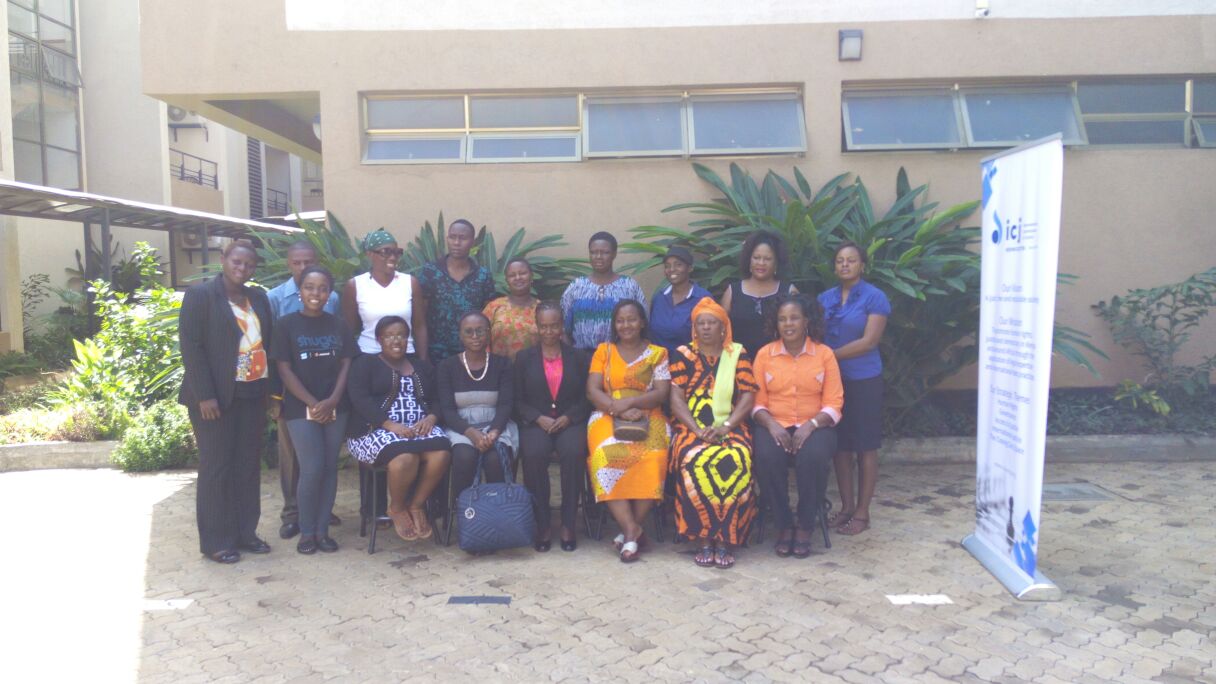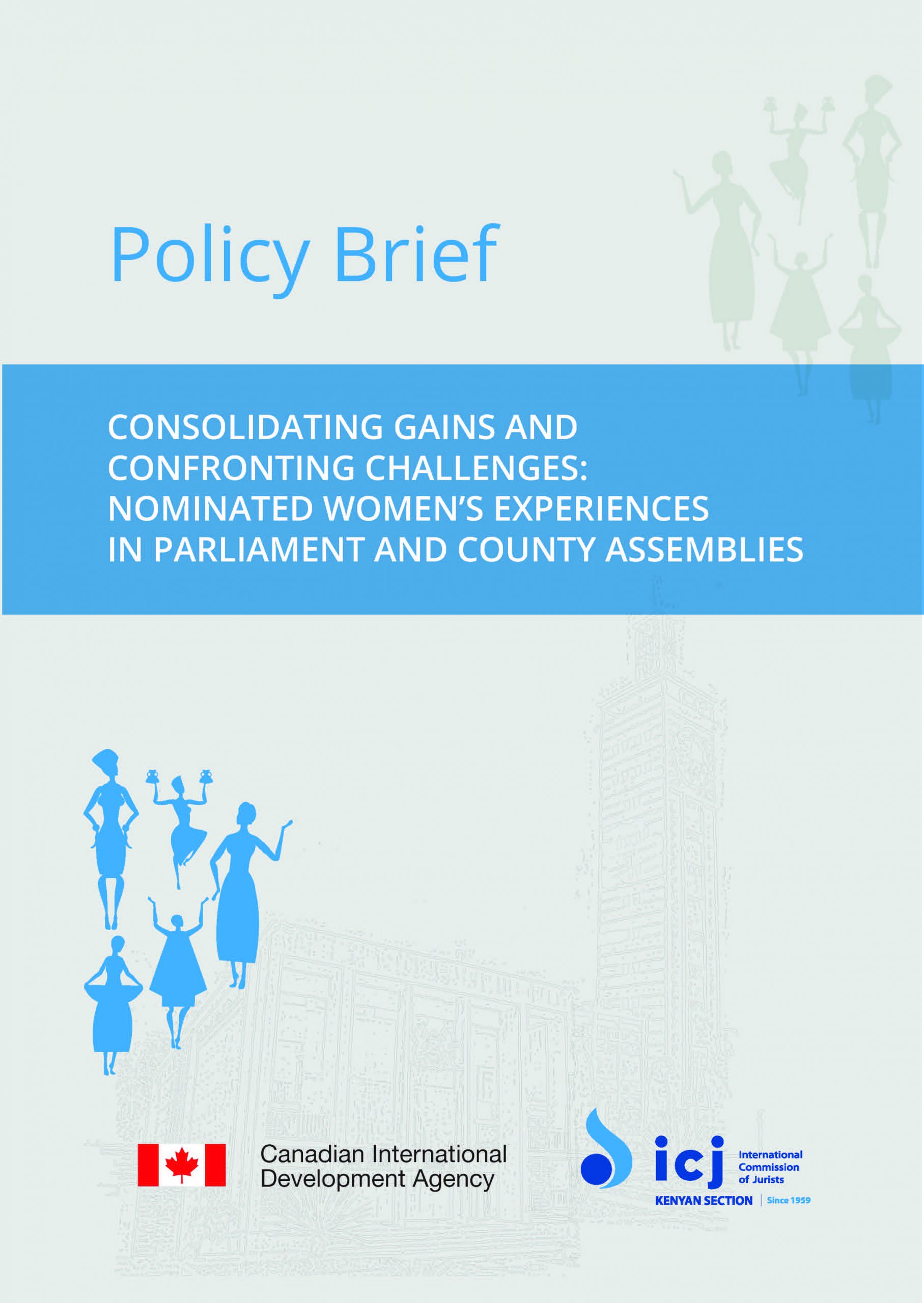BY MOSES OKINYI
ICJ Kenya in partnership with the Canadian Fund for Local Initiatives has been working to promote participation of women in governance and political processes in Kenya. The main objective of the project was to propose Policy and administrative reforms to Parliament and County Assemblies to secure the participation of nominated women in decision making and political processes.
Through previous CFLI support, ICJ Kenya promoted participation of women in governance and political processes in Kenya through research and capacity building. The research was conducted in Parliament and County Assemblies of Kisii and Kisumu.
Research conducted under phase one and phase two of the CIDA projects revealed glaring gaps in the policy, legal and administrative frameworks that seek to implement the affirmative action provisions of the constitution. Even though the representation of women has increased with the adoption of the COK 2010, there exists barriers that impede the full realization of gender equality in the legislative arms of government both at the national level and the county level.
The findings showed that women were still underrepresented and that the nominated women legislators faced many challenges that hamper their effectiveness and efficiency in serving the members of public. Nominated women legislators were sidelined in the major house committees and were not given resources to use in their service.The research findings were consolidated into a policy brief’ to document key gaps in the administrative structures and institutional framework that hinder effective participation of women in political processes with a view to consolidating key policy, legal and administrative reform proposals to enhance gender representation in political processes.
ICJ Kenya also conducted a validation forum in January of the draft policy brief with stakeholders drawn from various like-minded organizations including Maendeleo ya Wananawake, KEWOPA,National Women Steering Committee, Katiba Institute, Youth Agenda, Federation of women Lawyers in Kenya(FIDA) and Kenya National Human Rights Commission. The objective for this meeting was to corroborate the findings of the research as well as to factor in the views of other stakeholders in the policy brief. After thorough perusal of the draft policy brief, the stakeholders agreed that civil society needs to provide more civic education to enable the public to understand the role of nominated legislators and not perceive them as less of legislators.
The partners also faulted the Independent Election and Boundaries Commission (IEBC) for not adhering to statutory provisions by implementing section 109 of the Elections Act of 2011. The Act gives IEBC the power to make regulations to provide for the manner of nomination, allocation and reallocation of special seats and mechanisms for resolving disputes arising out of such nomination, allocation or reallocation. Such regulations would ensure parity and fairness in the nomination process and confront the negativity with which the nomination process is associated. Some of the participants were contenders in the last election and confirmed that they faced most of the challenges highlighted in the policy brief during the nomination process.











